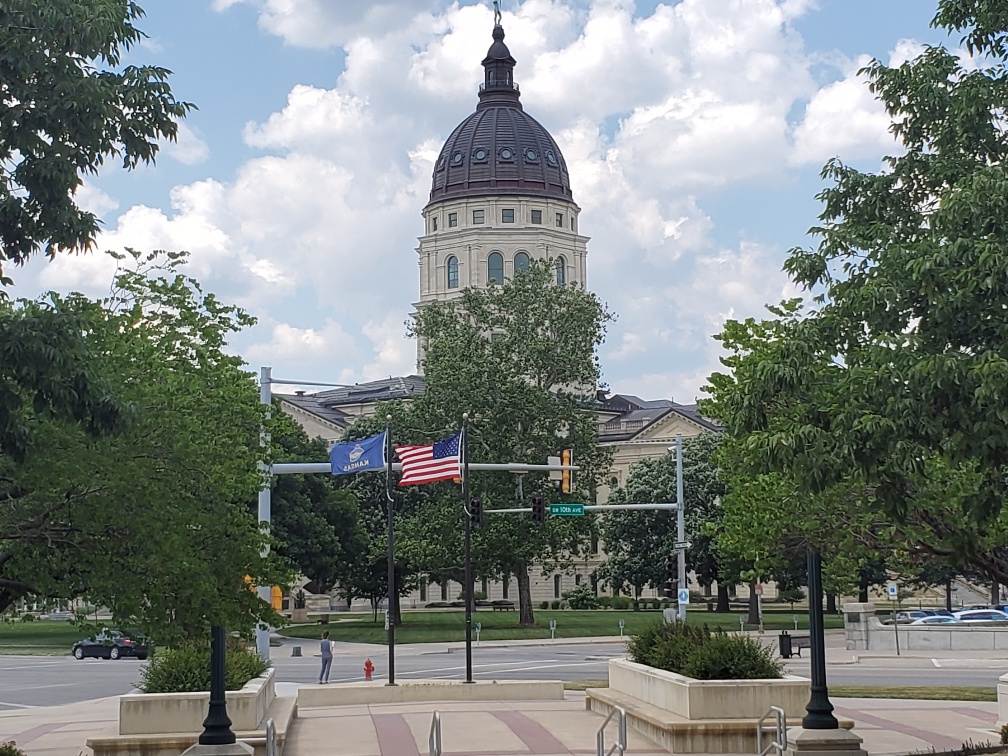
We are already into week four of the Kansas Legislative session. This past week, it surfaced that the state’s unemployment program has paid out an estimated $300 to $400 million in fraudulent claims. In fact, despite being a smaller population state, Kansas now ranks third in the nation for new unemployment claims, behind California and Illinois. Experts believe the spike in claims in Kansas is due to the fraudulent activity. As these fraudulent claims soared, Kansas families - some of whom applied for benefits months ago - have still been unable to receive their benefits.
Once pressed, Governor Kelly admitted that her administration’s program had been overrun with fraud. Unfortunately, they’ve allowed the problem to balloon to the point that they are shutting down the unemployment system to implement additional security measures. The system will be down, during which time Kansans will be unable to apply for benefits, from January 30 through 7 a.m. February 2.
One of the most frustrating aspects of this costly mistake is that the Legislature has been pushing the Kelly administration to take action for months. However, her administration has either been unable or unwilling to answer basic questions, such as how many fraudulent claims have been paid, how many dollars have been drained from the unemployment trust fund, or what steps will be taken to ensure that Kansas funds are not disbursed to criminal organizations running unemployment scams.
In addition to the urging of Legislature, the U.S. Department of Labor warned the Governor’s office months ago of the potential for fraudulent claims. Unfortunately, it does not appear that the Kelly administration took the preventive steps to counteract the threat.
I have received comments from people who say I am only being one sided and not placing the blame on republicans. Before the pandemic the unemployment division was able to handle the number of legitimate claims that would come in on a weekly basis. Late last winter, the number of claims both legitimate and fraudulent became more than the system could bear. The legislators role in state government is that of appropriators and oversight, we do not and should not micro-manage the daily operations of any agency as that is a function of the administration. During testimony we were told from several witnesses that they approached the Department of Labor to offer help, only to be turned away. I hope the communication will continue to get better as we work through all these challenges.
What will this mean for Kansas businesses and our schools? Previously, the state’s unemployment trust fund had nearly $1 billion in reserves. The administration’s payout of fraudulent claims has more quickly spent down the trust fund. When the trust fund reserves are low, Kansas business owners are on the hook to refill it, meaning businesses are expected to see their premiums skyrocket to cover the fraudulent claims.
Kansas schools are also among those impacted by the Kelly administration’s payout of fraudulent claims. Our K-12 schools, state universities, and not-for-profit organizations handle their unemployment fund participation through reimbursement. This means the state pays their claims and then sends them a statement to reimburse the state. The Kelly administration has begun sending out first quarterly statements to reimbursement employers. One Topeka school district learned the state had paid out $775,000 in fraudulent claims under their name. With federal reimbursements applied, that school district will owe the state nearly $400,000 for claims that never should have been paid and that the school district never authorized to be paid.
What happens next? In response, House Republicans introduced legislation this past week to hold our schools, nonprofits and businesses harmless. They should not have to pay the price for these mistakes. The Legislature will also continue to press the administration for answers and for a plan of action to remedy fraud in the system.
The other big issue is vaccine distribution. According to data from the Centers for Disease Control (CDC), Kansas is again lagging behind in distribution of the COVID-19 vaccine. On Tuesday, the CDC COVID Data Tracker ranked Kansas 47th in the nation, ahead of only Alabama, Idaho and Nevada.
Dr. Lee Norman, Secretary of the Kansas Department of Health & Environment (KDHE), provided an update to legislative committees last week on the “find my vaccine” portion of the **kansasvaccine.gov **website. He advised Kansans in Phase 2 who are interested in being vaccinated to start by checking with their local county health departments. Many county health departments have sign-up programs. He indicated the number of vaccine providers is growing and will include doctor’s offices, pharmacies and Methodist churches through United Methodist Health Ministry.
Dr. Norman also gave an update on allocation of the vaccine. Kansas is estimated to continue to receive approximately 45,000 doses each week, and there are 800,000 Kansans that fall into Phase 2. At a State Finance Council meeting on Wednesday, the Governor indicated Kansas’ allocated doses will be increasing by 16 percent for the next three weeks, which would increase the 45,000 doses figure. .
I have failed to mention my committee assignments this year: Chairperson of Committee on Agriculture, Member of Higher Education Budget and Member Committee on Appropriations. I am proud the lend my voice to the important issues that are being raised.
Because of COVID, we are not encouraging visitors to come to Topeka but if you would like to contact me : my office is still located in Room: 149-S. My phone number is (785) 296- 7463 and email is: ken.rahjes@house.ks.gov and you can always try my cell number at (785) 302-8416. When you call or write you might hear from Terry Bernatis, my assistant during the session.
It is my honor to be your representative.